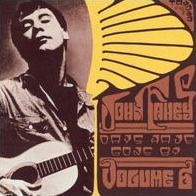Reception
Music critic Ronnie D. Lankford, Jr. of AllMusic praised the album, noting that it "expands American blues traditions by enriching the palette of the guitar with Eastern tunings. He may create a challenging work like 'A Raga Called Pat--Part Two' that is difficult to interpret, but its opulence is undeniable. Fahey has often been grouped with new age music but this—especially with his early work—is somewhat of a misnomer. New age strives to build harmony; Fahey revels in conflict. Days Have Gone By is another rewarding reissue of the master's classic '60s work and will be eagerly greeted by guitar aficionados." [2]
From his review for All About Jazz , critic Derek Taylor called it "... an album very much in the experimental vein that he first started tapping in the early 1960s... Fahey's influence remains indelibly etched in the psyches of those who have followed him, regardless of whether or not the corporate music culture chooses to recognize it. The self-styled grandfather of “American Primitive” guitar may be gone, but with documents like this one within ready reach his memory and music will endure for years and years to come." [1]
In late 2007, The Guardian included the album on their list of "1000 albums to hear before you die", writing: "Fahey makes innovative use of splicing and sampling. Locomotive sounds blend with his acoustic guitar to create a sparse, meditative atmosphere. A wide-open, pan-American travelogue." [7]
This page is based on this
Wikipedia article Text is available under the
CC BY-SA 4.0 license; additional terms may apply.
Images, videos and audio are available under their respective licenses.
